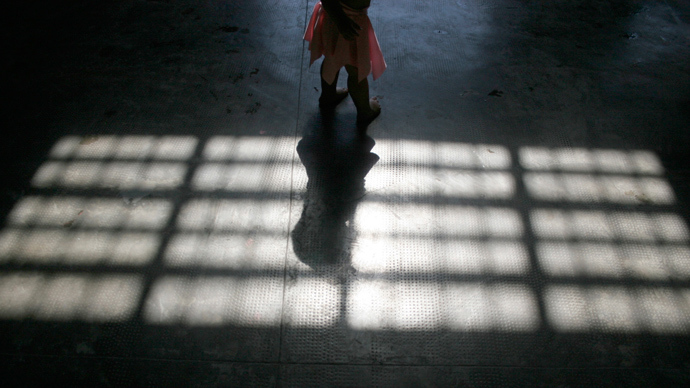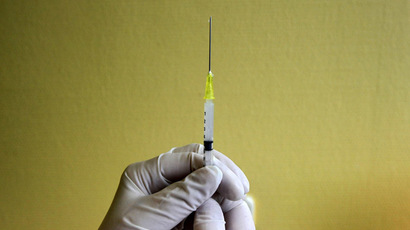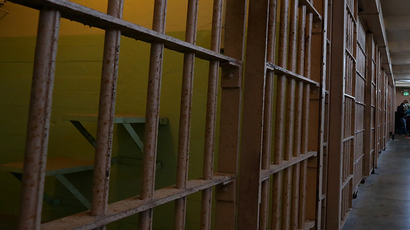Mother gets 20 years for infant’s death due to ‘negligent breastfeeding’

In an unusual case a South Carolina woman has been sentenced to prison for the involuntary death of her young infant, stemming from her decision to breastfeed, and the resulting death of her daughter due to a drug overdose.
Greene, a now-39-year-old nurse, was convicted by a jury last Thursday of homicide by child abuse, involuntary manslaughter and unlawful conduct towards a child in what has been deemed a case of “negligent breastfeeding.” On Friday, a judge sentenced Greene to 20 years in prison. She would be eligible for parole after 16 years.
In 2010 Greene was taking morphine to deal with the pain of fibromyalgia, defined as a disorder characterized by widespread musculoskeletal pain accompanied by fatigue, sleep, memory and mood issues. But she had also been involved in a near-fatal car accident in 1998 that left her with a skull fracture, a closed head injury, occipital nerve disruption, multiple rib fractures, a fractured humorous and a fractured pelvis.
Pregnant at the time, Greene suffered a miscarriage, and has since suffered from seizures, chronic pain and post-traumatic stress disorder, the Guardian reports.
Her daughter Alexis was six weeks old when Greene called the police, reporting her baby was unconscious in bed and felt cold. On a recording of the call, she sounded groggy and unfocused, the Associated Press reports.
Greene tried to do CPR, but had trouble counting to keep pace. Investigators at the scene found dozens of pill bottles and painkiller patches on her nightstand where the couple’s then 4-year-old son could get to them.
Rauch Wise, her lawyer, said that Greene relied on her own judgment and medical research on the Internet, rather than the advice of doctors, in the decision to breastfeed her daughter Alexis, according to the AP. “She needed those meds to get up in the morning and function,” Wise said. “She was on total disability because of her pain, her fibromyalgia and all the other things wrong with her.” He added that losing her child was punishment enough.
“Acknowledging her need for and use of morphine was apparently damning in the eyes of the jury, but as a matter of science it is entirely irrelevant. Trace amounts of painkiller appear in the milk of women taking codeine or morphine, and a fraction (roughly 10%) ends up in the child – 2 or 3 billionths of a gram – the effects of which are negligible,” Steven Karch, an expert witness for the defense, writes in a Guardian op-ed.
“No morphine-related death from breastfeeding has ever been reported in a peer-reviewed journal, and in fact the American Academy of Pediatrics recommends the use of morphine in preference to some other narcotics for women who are nursing babies.”
According to the coroner’s report, there was enough morphine in Alexis’ system - almost 50 times greater than would be expected in the infant - to possibly kill an adult. Three other drugs were also present in the baby’s system.
“This is not an indictment on breast feeding," prosecutor Barry Barnette told Reuters.
“She loved her drugs more than she loved her baby."
Greene had lost her nursing license in 2004 for trying to get drugs illegally and for refusing a drug test, and hid her pregnancy from doctors to continue receiving her prescriptions.
Karch argues that, for the prosecution’s theory to be correct, the baby’s stomach would have contained high concentrations of morphine, that the mother’s blood would have accumulated morphine metabolites, and that the mother’s hair would have shown if she had been taking higher-than-prescribed doses of medication. None of those tests were performed.
“In short, no real forensic investigation was conducted, just an autopsy with no diagnostic findings. If no drugs had been detected, death would have been attributed to [SIDS] (sudden infant death syndrome or “cot death”).”
Karch believes that Alexis’ death was due to a genetic defect, referring to a similar case in Toronto in 2005. There, the mother’s genome showed she carried multiple copies of a codeine-converting enzyme that caused her to produce too much morphine from the codeine she was taking, poisoning and killing her child. He also writes that around a fifth of all SIDS deaths are due to genetic defects, but no genetic testing occurred.
The case has created controversy in parenting and breastfeeding communities online. “I'd like to go on record saying this is an unbelievably harsh sentence that has no compassion in it whatsoever,” Kiri Blakeley, a blogger for Cafe Mom’s The Stir, writes.
“While I agree she should have been charged and punished, given that she hid her addiction from doctors and as a nurse should have known this was dangerous (whether she did or not isn't clear but she should have), I find the sentence to be extreme.”
"When reading the news stories on this case, I was skeptical that the baby overdosed from drugs in the mother's milk," Rachelle, the owner of Unlatched, a Facebook page that focuses on evidence-based research on breastfeeding and formula use, told SheKnows.com.
"The amount of drugs that gets into milk isn't very high — it's a small percentage. I would assume that the mother would have had to ingest a lethal amount for herself for it to have caused the levels found in the baby."
Greene is the first case in the US where a mother has been prosecuted for transmitting a substance to her child via breast milk. Barnette said that Greene still faces 38 charges of fraudulently obtaining drugs. The defense plans to appeal the conviction














